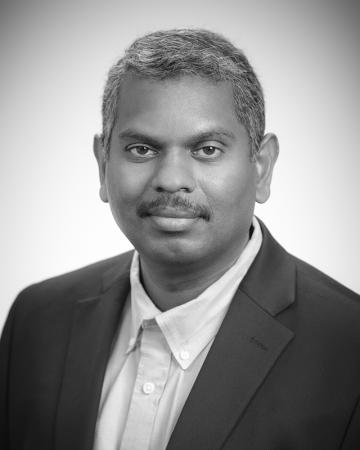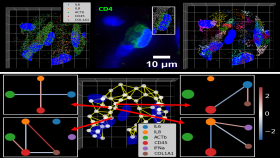Lakshmi Prasad Dasi will be joining the Wallace H. Coulter Department of Biomedical Engineering at Georgia Tech and Emory University on January 1, 2020, as a professor.
He received his Ph.D. from the Georgia Institute of Technology and also did postdoctoral work at the Institute.
In a short interview with Dasi, he describes his research, reasons for joining the Coulter Department, future impact of his research, and shares some personal hobbies outside of research.
Can you please describe your cardiovascular engineering research with a brief overview?
I am interested in translational cardiovascular engineering, i.e. push engineering to better treat and/or manage structural heart diseases in both adults and children. My team advances artificial heart valve technologies; tackles complex pediatric structural heart problems using engineering; and develops other innovative structural heart technologies. Our collaborative approaches include fluid and solid mechanics based experimental techniques, patient-specific predictive computational models, biomaterials, and 3D printing. While we integrate advanced biomaterials and biomechanical principles to realize next generation artificial heart valves, we are personalizing heart valve designs and surgical procedures through patient-specific simulations for optimizing outcomes. Finally, we firmly believe in translating our technologies to the clinic by supporting technology transfer and commercialization efforts.
Why did you choose to join the BME department at Georgia Tech and Emory?
I chose to join BME at Georgia Tech and Emory because of its strong and nurturing environment for innovation, collaboration, and translation. When it comes to translation in the area of structural heart diseases in adults and children, Georgia Tech has played a pioneering role. The sky is the limit here and being a Georgia Tech alumni myself, it presents a once in a lifetime opportunity to “stand on the shoulders of giants” – the very giants that formed the engineer in me – and take ever bolder steps to advance both engineering and medicine.
What do you see as the possible future impact of your work?
I believe that the future impact of our work will come down to saving and prolonging the lives of adults and children suffering from structural heart diseases. The realization of personalization in the field of structural heart diseases through the translation of our technologies will be instrumental in the improved diagnosis, planning, and treatment of a variety of structural heart diseases. As an example, a patient in the not too distant future will receive a precisely matched and designed biocompatible, and durable artificial heart valve that would be a superior, lower-risk, and lower-cost alternative to present day options.
When you are not doing research or teaching, what do you like to do?
I like recharging with family and friends, volunteer in the community and my church, and pursue other ways to help people.
Media Contact
Walter Rich
Keywords
Latest BME News
Commercialization program in Coulter BME announces project teams who will receive support to get their research to market.
Courses in the Wallace H. Coulter Department of Biomedical Engineering are being reformatted to incorporate AI and machine learning so students are prepared for a data-driven biotech sector.
Influenced by her mother's journey in engineering, Sriya Surapaneni hopes to inspire other young women in the field.
Coulter BME Professor Earns Tenure, Eyes Future of Innovation in Health and Medicine
The grant will fund the development of cutting-edge technology that could detect colorectal cancer through a simple breath test
The surgical support device landed Coulter BME its 4th consecutive win for the College of Engineering competition.
New research from Georgia Tech helps doctors predict how therapies will interact with a child's immune system, potentially improving outcomes and reducing risks.








